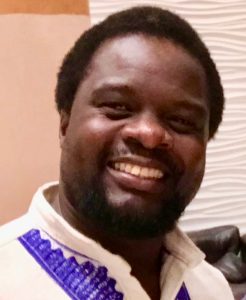 Are you going to World Assembly? Or do you have another big event, e.g., Formación, in your country or region with many people and a busy program to which the Word of God is central?
Are you going to World Assembly? Or do you have another big event, e.g., Formación, in your country or region with many people and a busy program to which the Word of God is central?
How can we make the most of these opportunities to meet with God and hear His Word, in a fresh and relevant way, when there are so many things to get involved with?
Let’s take a pause now to consider how we can engage with the Lord in His Word.
Personal delight and public testimony
The Psalms (our focus at WA 2023) are a great mixture of personal devotion, anguish, and praise combined with remembering, declaring, and testifying to the character and deeds of God in community.
If you read Psalm 40, for example, David poetically remembers what God has done for him: hearing his cry, setting him on the firm rock, and giving him a new song of praise…this personal encounter becomes an overflowing public testimony!
At our large gatherings, we can sometimes feel lost in the crowd, or very busy with numerous meetings. Here are a few simple ideas, which may help as you and other staff or students gather together to call on, hear from, and be transformed by the Living Word in these good, but busy gatherings.
- Personal: Be sure to set aside time to read and meditate on Scripture by yourself. Of course, you can follow your regular Bible reading plan, but you can also focus on the texts that are studied by everyone during the event. Having your own encounter with the Lord in these passages can prepare you to hear and better understand during the communal times of study. And, as you go through the conference, note down passages and thoughts that you want to spend more time thinking and praying over.
- Companionship: It is also good to value small group spaces of interaction with others around the Word. In large events, with many people, it is often these more intimate spaces, in pairs or smaller groups, where the sharing of doubts and discoveries becomes a special way of mutual learning and encouragement.
“I do not hide your righteousness in my heart; I speak of your faithfulness and salvation. I do not conceal your love and your truth from the great assembly.”
Psalm 40:10
- Community: Hearing from God through members of our diverse communities is a wonderful opportunity to learn from God’s Word through those from different contexts, who have different concerns, questions, and perspectives. As we study the reliable Word of God with other people, we might notice things about God, discipleship, and grace that would have otherwise gone unrecognised.
- Beyond the conference: So, as we go to World Assembly, Formación, and the like, let’s arrive open to what the Lord wants to teach us through His Word — in our own devotions, in the main teaching sessions, and over lunch, as we share what He is showing us in our contexts.
At these events we can hear stories, have access to resources, methods, and varied approaches to God’s Word. Seek to listen, learn, and identify (while taking note of) good practices that can be useful or adaptable to the challenges of your own reality and culture. Be willing to share your stories, your difficulties, but also the ways you’ve successfully engaged with the Scriptures.
These exchanges will help us grow in how we love, study, live, and share the Word of God in our mission contexts.
Paula and Ricardo
Serving as leaders of IFES Scripture Engagement Global Team


 The Bible is a lamp to our feet and a light for our path. It is healing for the soul; it is the breath of God himself. Through it, God challenges and comforts, rebukes and restores, exhorts and encourages. It is, in its entirety, God’s revelation of truth to us.
The Bible is a lamp to our feet and a light for our path. It is healing for the soul; it is the breath of God himself. Through it, God challenges and comforts, rebukes and restores, exhorts and encourages. It is, in its entirety, God’s revelation of truth to us.
